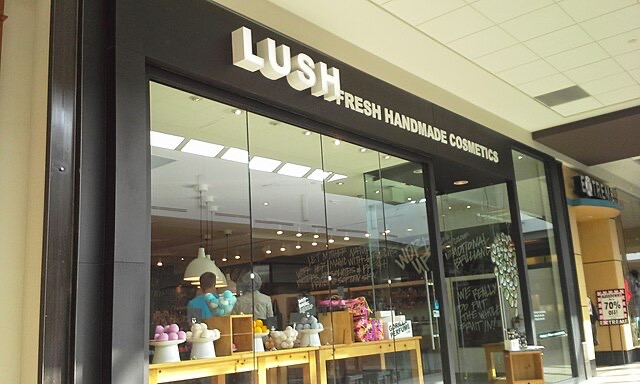High street cosmetics giant Lush temporarily closed all 113 UK stores, its website and manufacturing facilities on Wednesday in an unprecedented show of solidarity with Palestinians facing famine conditions in Gaza.
The British beauty retailer, which operates shops from Edinburgh to Exeter, displayed stark messages reading “Stop starving Gaza – We are closed in solidarity” across shuttered storefronts, whilst its website homepage featured the colours of the Palestinian flag.
The one-day closure represents a significant financial sacrifice for the Poole-based company, which acknowledged losing both daily takings and denying the UK Government a day’s worth of tax contributions.
Across the Lush business we share the anguish that millions of people feel seeing the images of starving people in Gaza, Palestine,” the company stated. “Like the rest of the world, we struggle to find ways we can help whilst the Israeli government is preventing urgent humanitarian assistance from entering Gaza.”
The dramatic action comes as United Nations officials confirm famine has gripped parts of Gaza, with over half a million Palestinians facing catastrophic food insecurity. According to the Integrated food Security Phase Classification released in August, 100% of Gaza’s population experiences high levels of acute food insecurity, with 32% projected to face catastrophic conditions by the end of September.
Gaza’s Ministry of Health reported that 313 people have died from hunger-related causes throughout the conflict, including 119 children. The death toll from Israeli military operations has surpassed 63,000, according to health officials, with the UN warning that virtually no one in Gaza remains untouched by hunger.
The cosmetics retailer, known for handmade bath bombs and ethical policies, revealed its Watermelon Slice fundraising soap has become “the most successful single issue fundraising product in the history of Lush.” The watermelon-scented product, which echoes Palestinian flag colours, directs 100% of profits to mental health support for children in Gaza and the West Bank.
We now plan to make this soap available again, with the funds going to medical services, including charities that are gearing up to provide prosthetic limb services to adults and children injured in Gaza,” Lush announced.
The company’s statement directly challenged UK Government policy, noting: “Whilst Lush is losing a day of takings, this also means that the UK Government is losing a day of tax contributions from Lush and our customers. We hope they too hear the message our closure sends, with more Government action needed to bring an immediate stop to the death and destruction, including an end to arms sales from the UK.
Despite Foreign Secretary David Lammy suspending 30 arms export licences to Israel in September, citing “clear risk” of international humanitarian law violations, approximately 320 licences remain active. Critics argue the partial suspension falls short, particularly as UK-manufactured components continue supplying F-35 fighter jets used in Gaza operations through a US-managed global spares programme.
“Providing our customers with the very best service is ingrained into everything we do at Lush, so shutting our shops is not an easy decision,” the company acknowledged, apologising to inconvenienced customers whilst maintaining the closure was necessary to demonstrate solidarity.
The shutdown affected Lush’s extensive UK network, including flagship stores in London’s Oxford Street, Birmingham, Liverpool and Glasgow. The company, which employs thousands across retail and manufacturing, expects international stores to “seek ways to express their solidarity” despite Wednesday’s action being limited to UK operations.
Industry sources suggest the closure could cost Lush hundreds of thousands in lost revenue, marking one of the most significant corporate protests related to the Gaza conflict by a major British retailer.
UN humanitarian coordinator Joyce Msuya described the situation starkly: “This famine is not a product of drought or some form of natural disaster. It is a created catastrophe – the result of a conflict that has caused massive civilian death, injury, destruction and forced displacement.”
The cosmetics firm, founded in 1994 and known for campaigns against animal testing and environmental causes, has historically engaged in political activism. However, Wednesday’s nationwide shutdown represents its most substantial intervention in international affairs.
As shops prepare to reopen Thursday, Lush’s bold stance highlights growing pressure on businesses to respond to humanitarian crises, whilst intensifying scrutiny of Britain’s ongoing arms exports amid what UN officials confirm as the Middle East’s first officially recognised famine.
Follow for more updates on Britannia Daily



